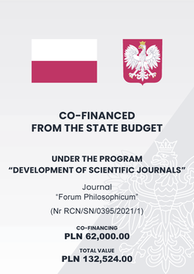- Home »
- Issues »
- 20/2 - Fall 2015 »
- Articles »
Otherwise than Identity, or Beyond Difference
Maximus the Confessor and the Hypostatic-Transfigurement of Fundamental Ontology
Abstract
This paper locates in the philosophy of Maximus the Confessor a remarkable concern for the temporality, finitude, and historicity of the human soul, that at once anticipates Heidegger’s “fundamental ontology,” but which is also capable of overcoming the limitations of philosophical nihilism. In taking up Heidegger’s claim that the recovery of ontology (and philosophy itself) depends upon the understanding of Being always in relation to its self-revelation in the finite and historical reality of human existence, it becomes clear that contemporary philosophical expression requires a “turning away” from the conceptual unity of finite beings and eternal Being, and a movement toward a radically subjective negativity. In contrast to his Neoplatonic forebears, Maximus presents a mode of thinking which is capable of surpassing Heideggerian negation, not through a denial of human particularity or finitude, but rather through a transformation of the very categories of Being and non-being themselves through his understanding of divine personhood. For Maximus such personhood is conceived of as transcending both Being and time, and yet without any loss of transcendence comes also to partake fully of both through the mystery of the Incarnation. According to Maximus, this radical event of be-coming forever transfigures the sphere of beings, bringing the historical into the transcendent, non-Being into Being, and death into life.
Keywords
Cite this article
Pappas, Jack Louis. “Otherwise than Identity, or Beyond Difference: Maximus the Confessor and the Hypostatic-Transfigurement of Fundamental Ontology.” Forum Philosophicum 20, no. 2 (2015): 125–37. doi:10.35765/forphil.2015.2002.12.





